This classic Ayurvedic CCF tea offers a powerhouse of digestive health benefits that are easily enjoyed by anyone who has cumin, coriander, and fennel seeds in their spice cabinet. (Which you probably do!)
Overall, the taste of CCF tea is sweet, pungent, and bitter, with a mild, overall warming effect. It is dry, light, and clear, with a beautiful golden color when brewed.
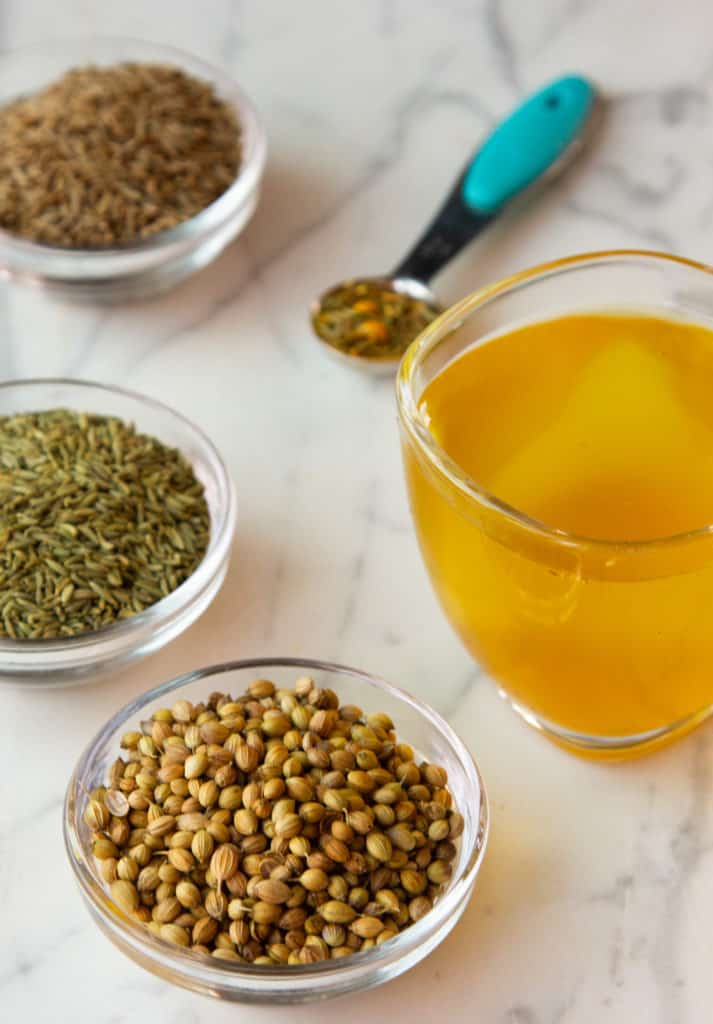
Jump to:
While the health benefits are many, what stands out CCF tea’s support for digestion (particularly for gas and bloating), absorption and assimilation of nutrients, and gentle detox benefits.
Cumin, coriander, and fennel tea is also mildly diuretic, so its very helpful in the spring season, or whenever excess water retention is a concern.
10 health benefits of CCF Tea
- stokes digestive fire and metabolism
- encourages absorption and assimilation of nutrients
- warms up circulation
- cleanses the lymphatic system (detox)
- reduces gas and bloating
- gentle detox
- relieves congestion
- soothes inflammation
- improves elimination
- helpful for nausea, poisons, and toxicity
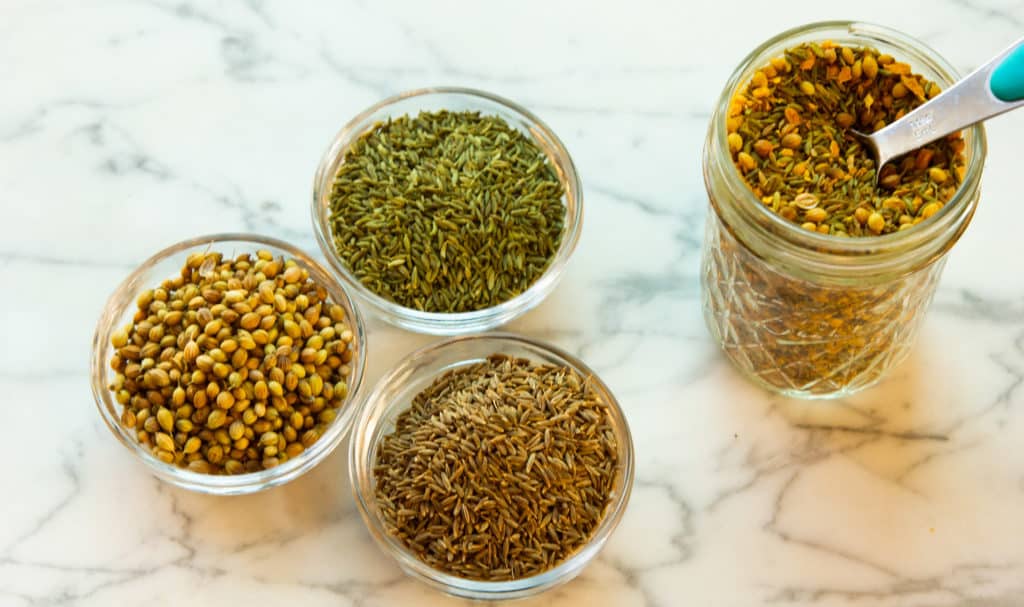
Health benefits of cumin, coriander and fennel
Cumin, coriander, and fennel are common spices used in Ayurvedic cooking, because they are fairly neutral in terms of heating and cooling effects, and therefore suitable for all doshas.
Each spice is also packed with support for healthy digestion, as well as much, much, more.
CUMIN: Cumin is a powerhouse of digestive support that stimulates metabolism, controls gas, and relieves congestion.
CORIANDER: Coriander also improves digestion and controls gas, but it also reduces inflammation, calms muscle spasms, and increases absorption and assimilation of nutrients.
FENNEL: Due to its cooling quality, fennel is the best spice for Pitta types to support digestion. Fennel also relaxes the digestive tract, making it helpful for treating IBS. Fennel also helps to move lymph, and promotes breast milk, mental alertness, and fat burning.
What dosha does CCF Tea support?
CCF tea is considered tridoshic, but Pitta types may find the cumin heating if they consume too much. A squeeze of fresh lime could help in that case.
Vata benefits from the warmth of this tea, as well as the digestive support, particularly for gas and bloating.
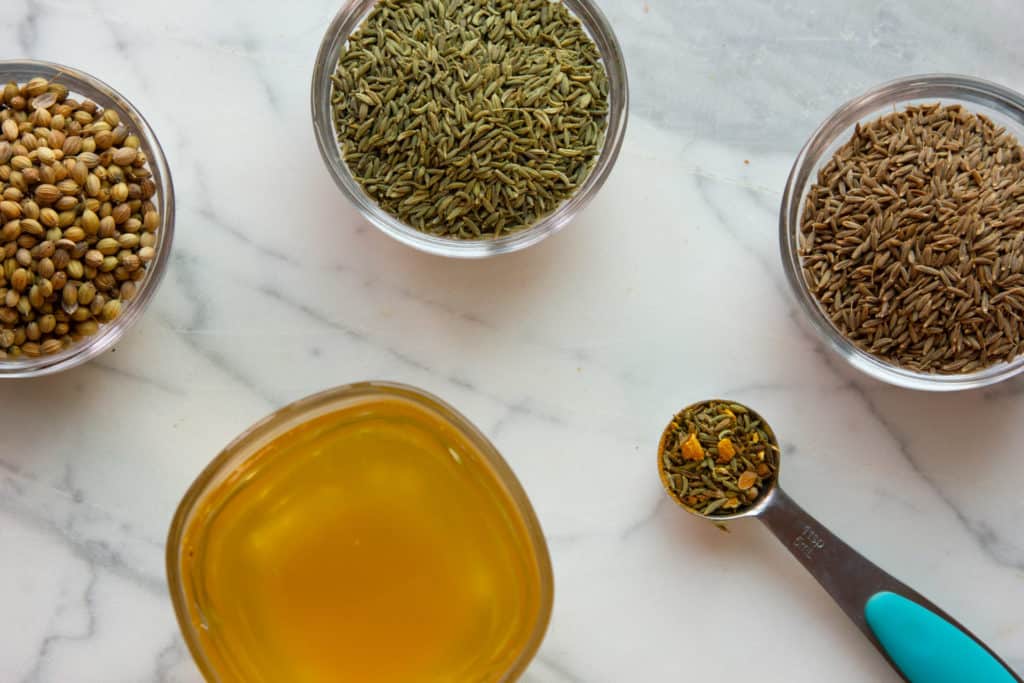
Vata’s should be aware of the tea’s mild diuretic quality, which could dry them out.
Kapha benefits similarly to Vata, but the mild diuretic effect that reduces excess water weight is even more supportive for Kapha.
Both Vata and Kapha types might enjoy this with honey on occasion.
I also love adding a couple slices of fresh ginger, and/or turmeric root or turmeric powder, for additional health benefits.
Turmeric is bitter, pungent, warming, and drying, and greatly supports circulation and blood cleansing.
Ginger is warming and pungent, and supportive for nausea, indigestion, and inflammation.
When should I drink CCF tea?
I always encourage my students to drink a cup of hot water 15-30 minutes before their meals to hydrate the body so that it can easily manufacture the digestive juices required for comfortable digestion.
Studies have shown that this simple practice can increase the efficacy of digestion by as much as 24-30 percent.
Cumin, coriander and fennel tea is appropriate to drink prior to meals, or even with meals, as long as you don’t drink too much with meals.
During meals, drink small sips if you feel the need, but as a general rule, avoid drinking too much liquid (more than a cup) with meals, since it can dilute the digestive juices.
You can also sip CCF tea in between meals.
So that is pretty much any time, but I don’t advise CCF tea in the evening, due to its diuretic quality.
As with any Ayurvedic or herbal tea, 2-3 cups a day is a good rule.
Try enjoying 2-3 cups a day for 2 weeks as an experiment to see how it makes you feel.
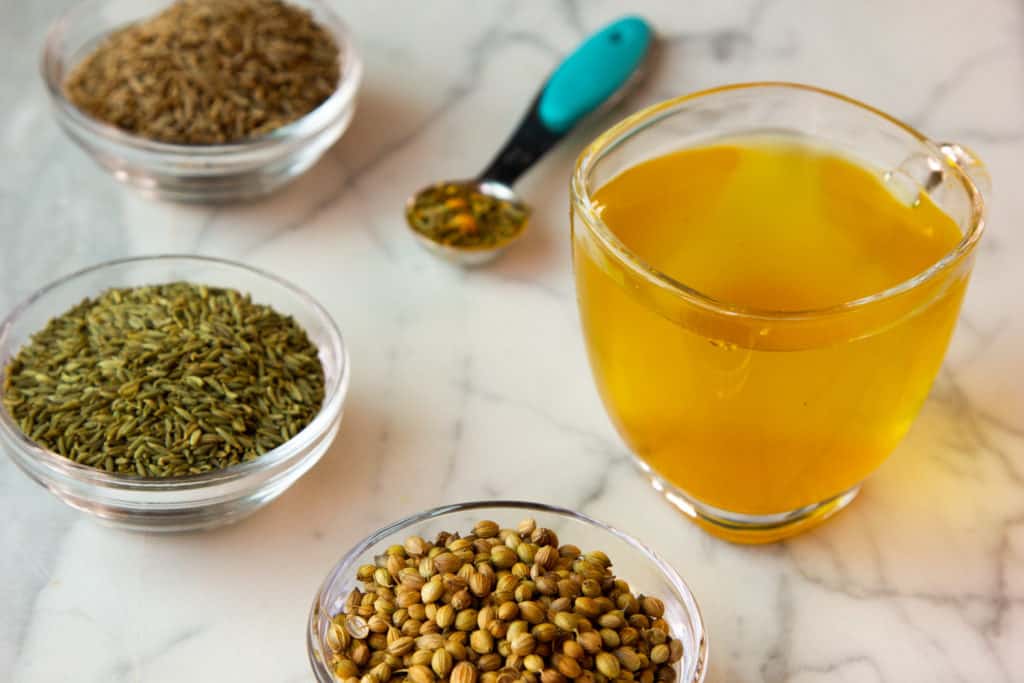
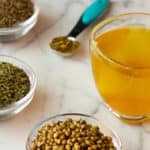
Recipe for CCF Tea (Cumin, Coriander and Fennel)
Ingredients
- 1 cup water
- ⅓ teaspoon cumin powder
- ⅓ teaspoon fennel
- ⅓ teaspoon coriander seed
Instructions
For a quick brew, steep with boiling water.
- Use 1 teaspoon seeds per cup of water.
- Place seeds in a basket and pour over boiling water.
- Steep 5 minutes.
- Remove tea basket and seeds, and enjoy.
For a stronger brew, boil and strain.
- Use 1 teaspoon seeds per cup of water.
- Place seeds in a saucepan with the water.
- Bring to a boil, then reduce to a simmer for 5 minutes.
- Strain and enjoy.
Notes
Nutrition
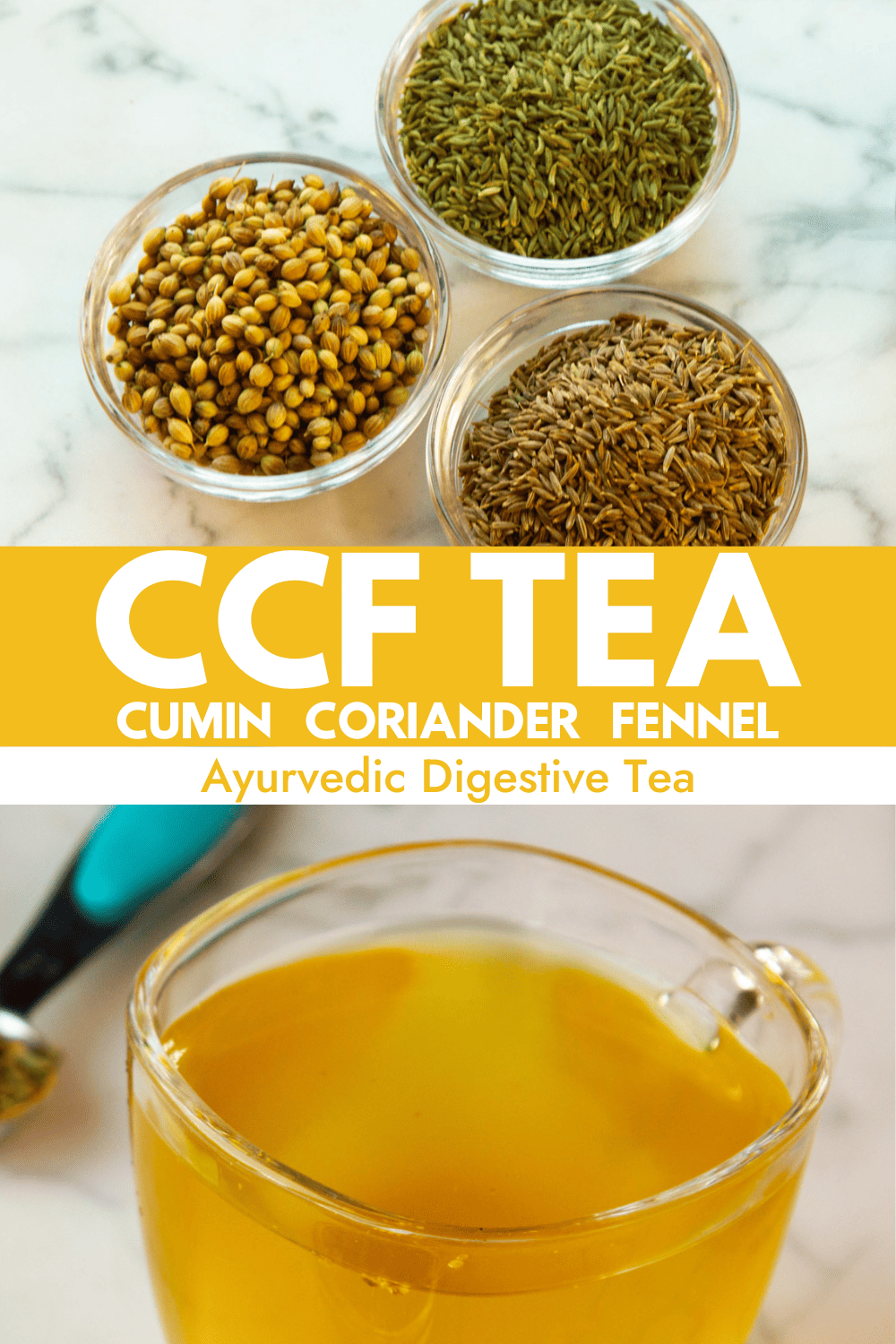




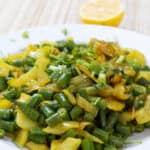




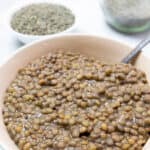
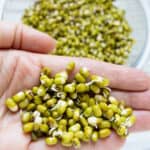
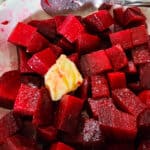


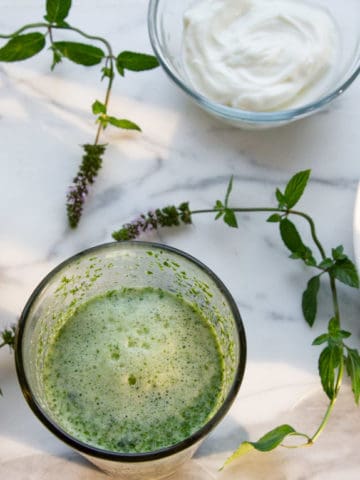
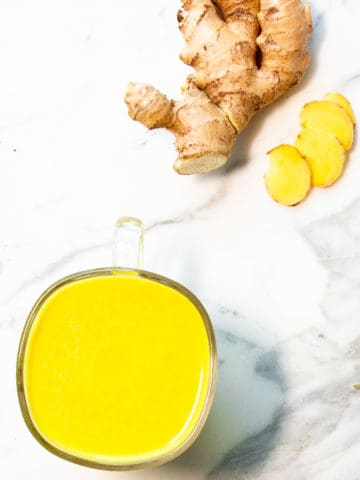
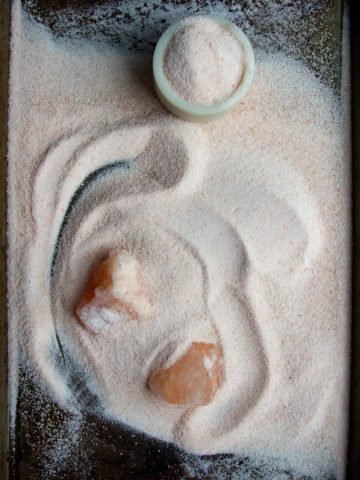
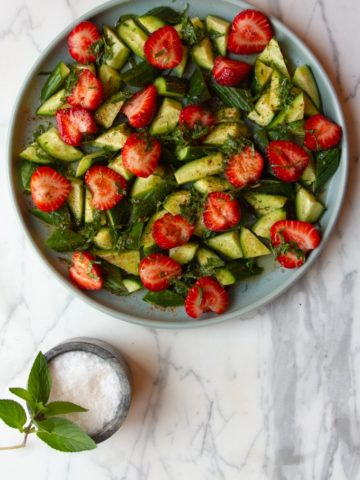
Leave a Reply